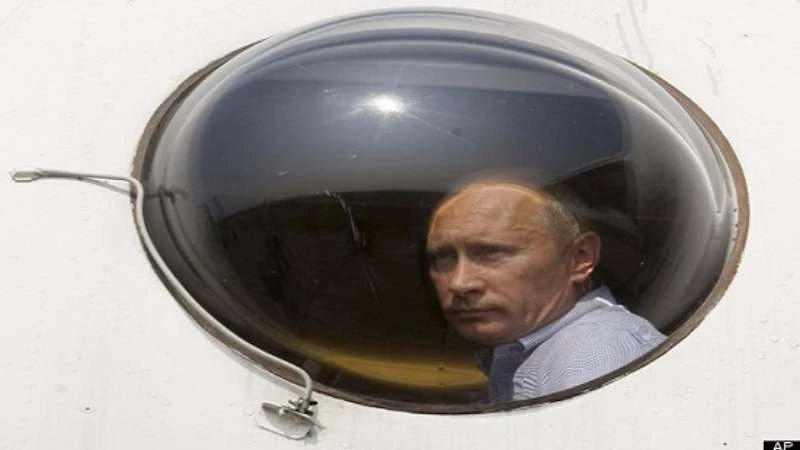When Putin launched his initiative, he thought that there are a number of reasons that make the Europeans read him as a virtuous person reflecting possible Russian inclination toward peace.
Definitely, he knows that the European obsession of Russia’s nuclear capabilities dominated by his unpredictable ambitions is an important factor to make them think positively of this proposal. Furthermore, the unexpected Obama’s leniency towards Putin’s provocative policy frightens the Europeans and makes them debate the role of America’s participation in maintaining their physical security. In fact, the Europeans are afraid that this very emerging American leniency might be extended to the philosophy of the next American president.
In addition, the Europeans have the sentiment that they were deserted by America’s Obama to encounter Putin’s expansionism alone. Thus, they might read Putin’s initiative as a good idea. But the big question is: Do the Europeans trust Putin’s credibility in this domain?
The behavior of Putin in Eastern Europe is not promising, since he had assumed the office in December 31, 1999. If they imagine that he is true in his inclination towards peace, they will definitely inquire whether he is able to meet the criteria needed to verify his authenticity of confidence-building.
The Europeans aspire to guarantee that the decision-making in Russia will not remain hostage of one-man show, and subject to the mood of a Russian dictator after another. Therefore, the first condition to bring tranquility to their hearts is achieving democracy and justice within Russia. This requires Putin’s recognition of the Russian opposition’s legitimate right to practice their democratic role in monitoring the state’s performances. In this case, is Putin able to reconcile with the idea of admitting Kasparov and other Russian opposition figures scattered worldwide a free access to the Russian politics? Is Putin ready to stop the farce of denying his involvement in victimizing these figures as what happened to Boris Nemtsov, one of Russia’s leading opposition figures and a true Russian patriot, who was brazenly assassinated in the shadow of the Kremlin in the most guarded area of Moscow? (The slashing irony is that "this case was filed against unknown person!"). Is Putin ready to relinquish the farce of the political game of "musical chairs" he conducted with his puppet Medvedev for capturing authority?
The second condition is the practice of good will and intention. Is Putin able to stop investing in the European extreme rightists who strive to restore fascism to the European societies? These movements, like PEGEDA, and the French extremist National Front of Marine Le Pine, and Netherlands’ Geert Wilders, and Poland’s Europe minister Konrad Szymanski, not to mention the Greek prime minister Alexis Tsipras, constitute Putin’s asset to dismantle European Union and destabilize the social coherence. (Putin also directed his state-media to support the election campaign of Donald Trump who demands the Europeans to compensate America for its participation in NATO.) Is Putin ready to be good enough to terminate dealing with these movements as a good gesture for the embodiment of his non-block idea.
From Ukraine to Syria, Putin is behaving like the world’s new general and celebrating victories.
Can Putin stop his grossly violation of the European postwar borders? And is he able to rectify his contradictory behavior in both Ukraine and Syria, in the sense that he admits the peoples of these two countries to decide their future independent of his biased intervention?
The credibility of Putin in Syria is at stake. Does he really intend to achieve justice and peace by utilizing his military potentiality which is being deployed to crush the disarmed Syrian people?
Is Putin ready to stop taking the formula of fighting "terrorism" as a pretext for the bombardment of Syrian kids either in Aleppo and in their camps situated at the border with Turkey?
How will the Europeans believe Putin who claimed, last March, that he had withdrawn the maximum number of his jets and forces from Syria, but later on they discover that he was bluffing in this regard.
The problem of Putin is that he feels overconfident due to the fact that Obama conducted a policy of isolationism. This policy was understood by Putin as a "green card" for Russia to freely conduct a policy of expansionism and annexation regardless of the international law.
The gap of mistrust between Russia and the West party is not narrow. Unless Putin gives up the adoption of former USSR tactics, namely, the unmatched promise with the behavior, then the Europeans would find it hard to response to his gimmick. It seems that the recent news of the NATO beefing up its rocket arsenal in Romania is an indication of the Europeans mistrust in Putin’s words. Being true is the essential criterion to gain other people’s confidence.



التعليقات (0)